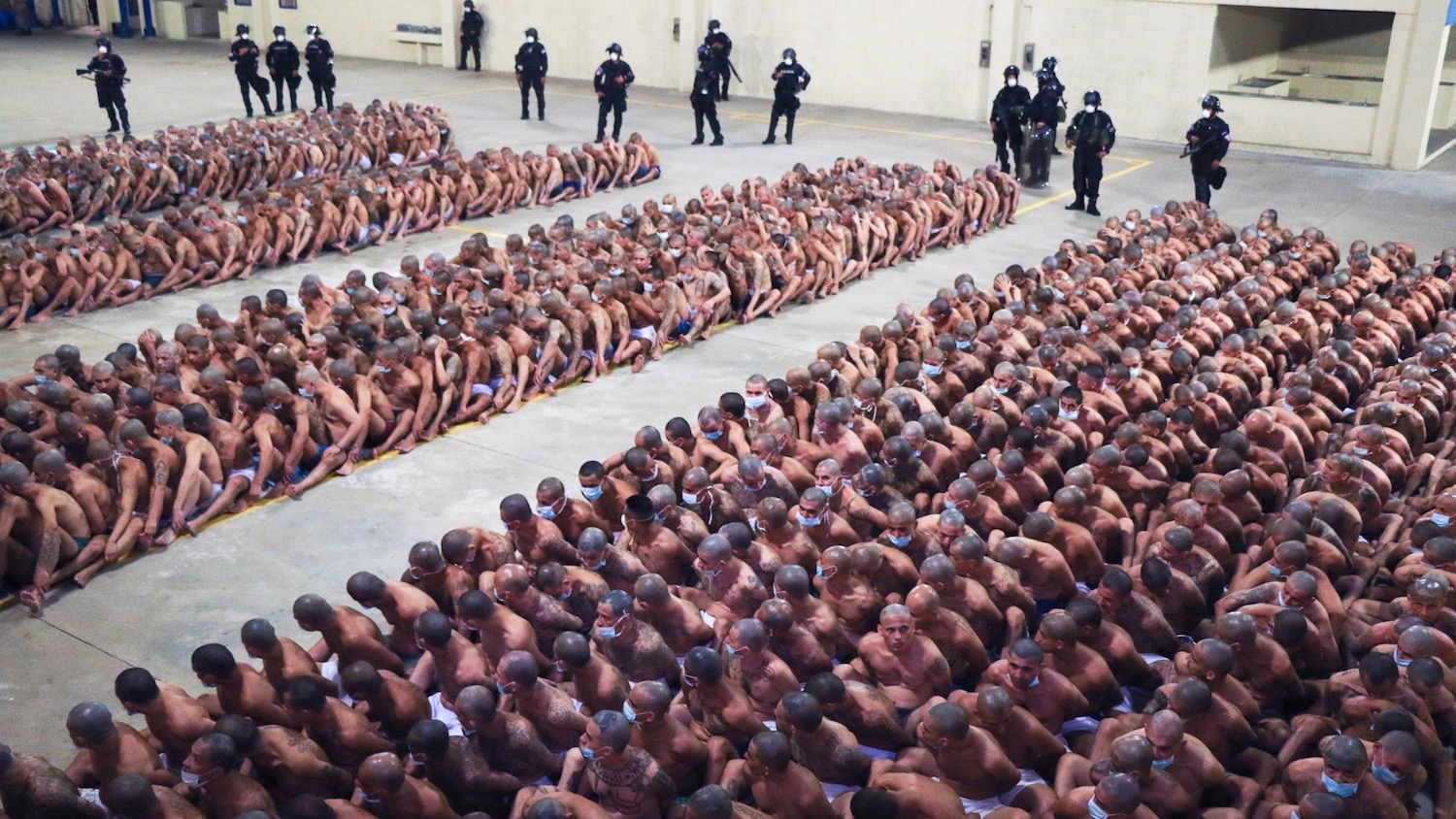El Salvador’s President Nayib Bukele is facing criticism from national and international human rights organizations for using lethal force against imprisoned gang members, as a part of the punishment for a series of gang-related killings in recent days in the country.
Last Friday, on April 24, some 22 homicides were reported in the country. The same day, late in the night, President Bakele ordered a 24-hour lockdown of prisons containing gang members and sent the gang leaders into solitary confinement, alleging that most of the murders were ordered from behind bars. He claimed that criminal gang members took advantage of the lockdown imposed due to the global COVID-19 pandemic, during which the security forces had supposedly turned their attention away from them and towards curbing the spread of coronavirus.
Government authorities informed that by Sunday, April 26, more than 50 people were assassinated. In the aftermath, on April 26, Bukele imposed a state of emergency in the prisons, deployed military to deal with suspected gang members and locked up inmates from rival gangs in the same overcrowded cells, in an attempt to cut communication between the members, thereby limiting their ability to plan attacks.
“The police and armed forces must prioritize safeguarding their lives, those of their companions and of honest citizens. The use of lethal force is authorised in self-defence or in defence of the lives of Salvadoreans,” wrote Bukele in a tweet.
On April 27, Bukele’s security minister Osiris Luna further intensified the confinement measures and ordered to seal cell doors and windows with plywood and in some cases with metal sheets. Luna justified the move saying that it was necessary to stop the inmates from passing messages outside about who they want killed.
Earlier that day, Bukele had posted a video on his Twitter account, which he said showed inmates forming letters with their T-shirts to send messages to other cells.
Justo el día siguiente, comenzaron los homicidios.
Pero ¿de qué sirve sellar las celdas si eso no evitará que el sistema judicial los deje libres?
Pues para evitar que lleven información de otras celdas; ya que nos dimos cuenta de que se comunicaban así: pic.twitter.com/flFkFi1OfR
— Nayib Bukele (@nayibbukele) April 28, 2020
During the weekend, several government officials, including President Bukele, on their Twitter accounts, published shocking photos and videos of intensive searches carried out in five prisons. The photos showed hundreds of prisoners stripped to underwear and crammed together in formation, with their hands bound and only some wearing face masks, in prison yards while their cells were being searched.
These photos caused outrage among national and international human rights organizations, who pointed out that the images stand in contrast to social-distancing measures essential in combating the novel coronavirus.
Erika Guevara, Amnesty International’s director for the Americas, also denounced the decision. “We view these photos taken of people deprived of their liberty in the prisons with great concern, they are scenes where people are brought together in prison yards in a humiliating, demeaning manner,” said Guevara.
Salvadoran president @nayibbukele is having gang members sealed in their cells with members of rival gangs, who have historically been kept apart in prisons to avoid massacres https://t.co/yq5aiNg5Yc
— Duncan Tucker (@DuncanTucker) April 27, 2020
However, before the criticism, Bukele advocated his zero tolerance approach to crime and argued that since he came to power, he had been successful in curbing the rampant gang violence suffered by citizens for decades.
El Salvador is considered one of the most violent countries in the world with homicide rates per 100,000 inhabitants between 103 and 50.3 registered between 2015 and 2018. The two rival gangs, Mara Salvatrucha (MS 13) and Barrio 18, are behind much of the violence in the country. Since 1992, shortly after the end of the civil war, the gangs have been terrorizing millions of Salvadoreans.
According to the Directorate of Penal Centers in El Salvador, some 12,862 gang members are incarcerated in the seven security prisons in the country.
Several national human rights activists and health experts urged the authorities to release nonviolent prisoners in the view of the United Nations’ (UN) appeal to governments around the world to release vulnerable prisoners to ease overcrowding in prisons due to the pandemic.
As of April 29, El Salvador has 345 cases of the coronavirus disease, with 8 deaths and 97 recoveries.





